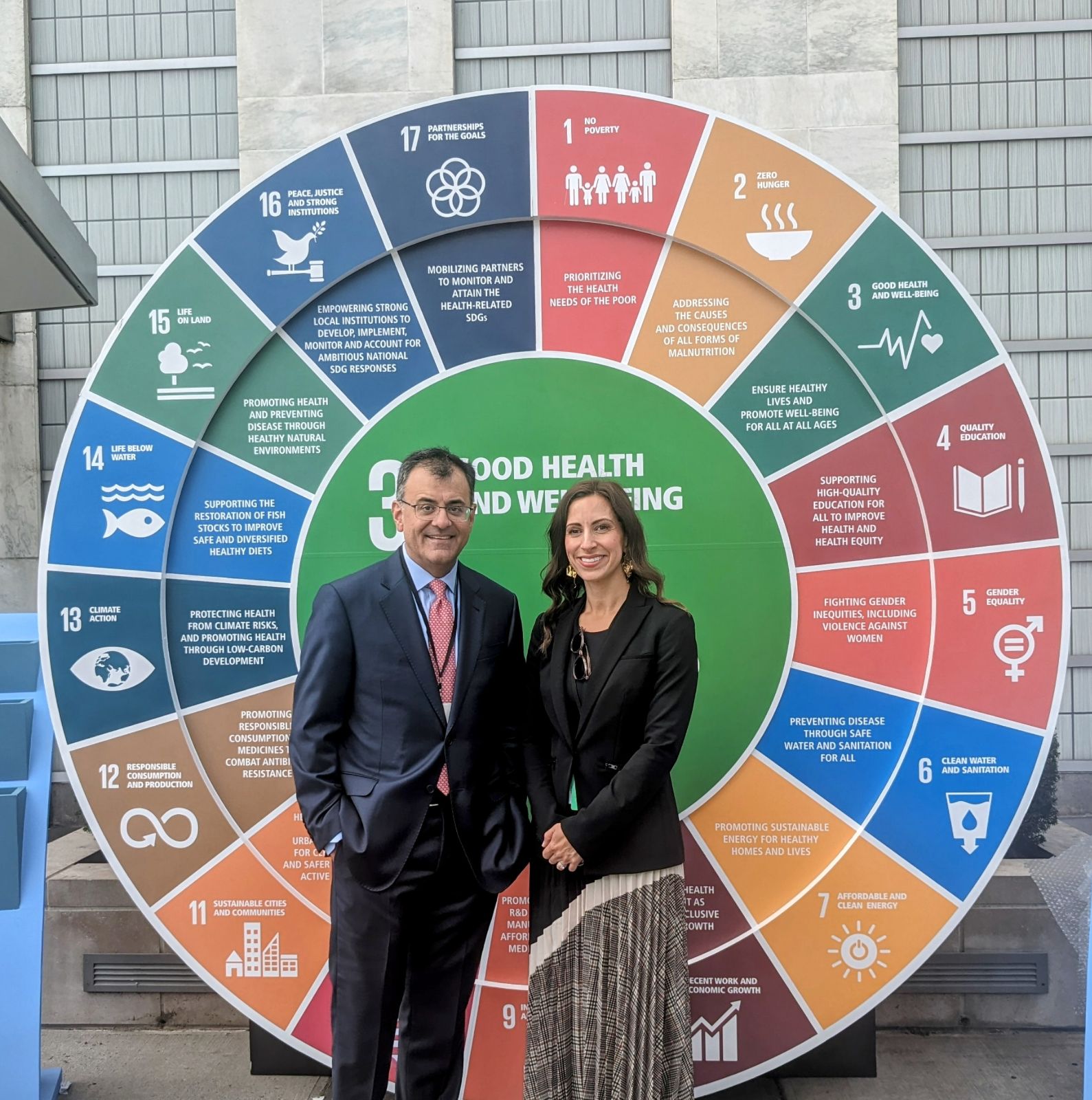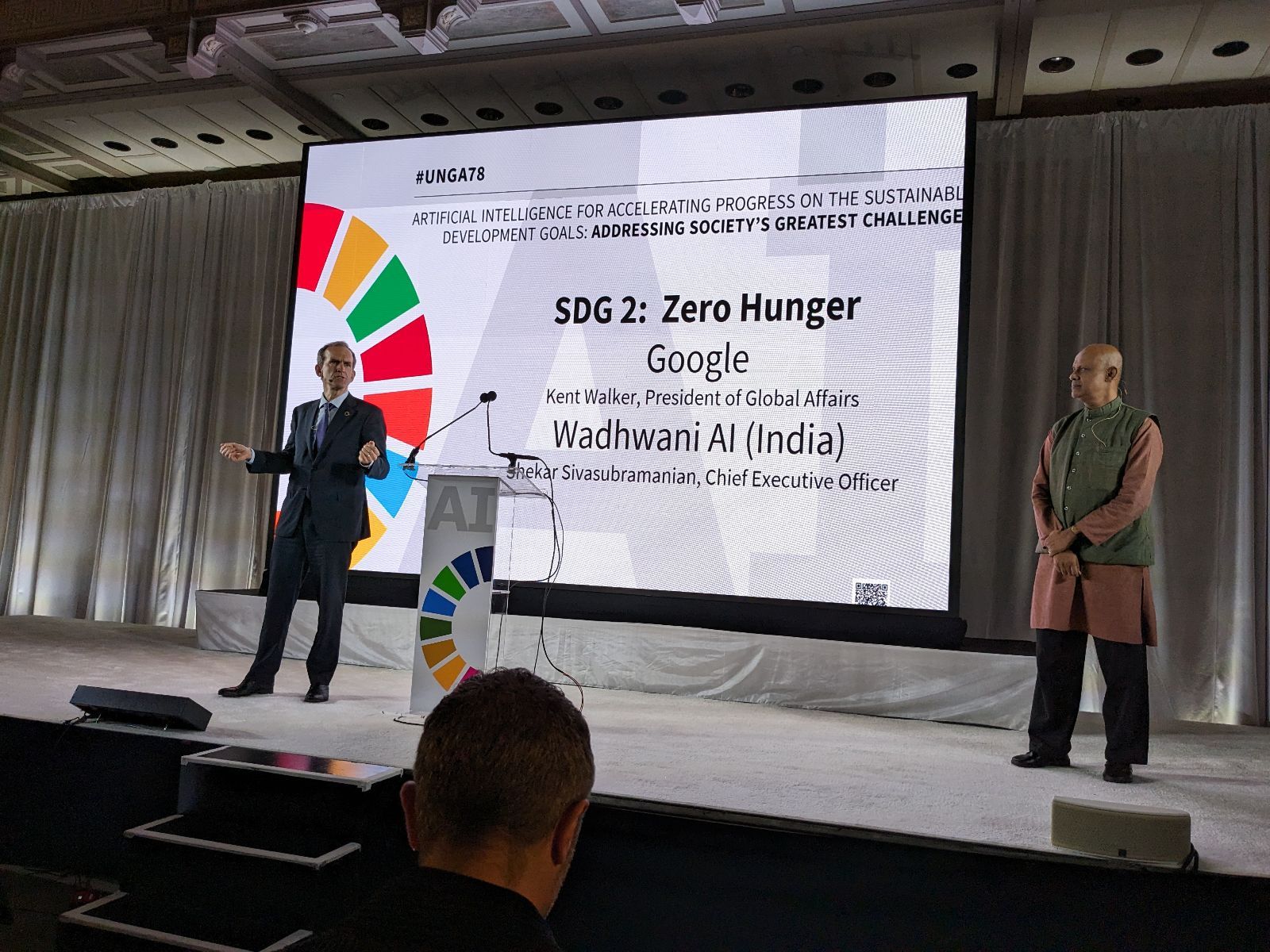At this year’s United Nations General Assembly (UNGA), the 17 Sustainable Development Goals (SDGs)—and how AI can achieve their implementation—were in the spotlight.
As governments, the private sector, and civil society work to achieve the SDGs by their 2030 target date, Google announced partnerships that are leveraging AI to advance their progress around the world.
“AI could be the game-changing development that the world desperately needs to make generational progress.” said Karan Bhatia, Google Vice President of Global Public Affairs and Government Relations. “Which is why our approach to AI has to be both bold and responsible. The core part of that is going to be working together, working collectively. We're optimistic coming out of an incredible week at UNGA that we've made some significant steps forward in doing that.”

